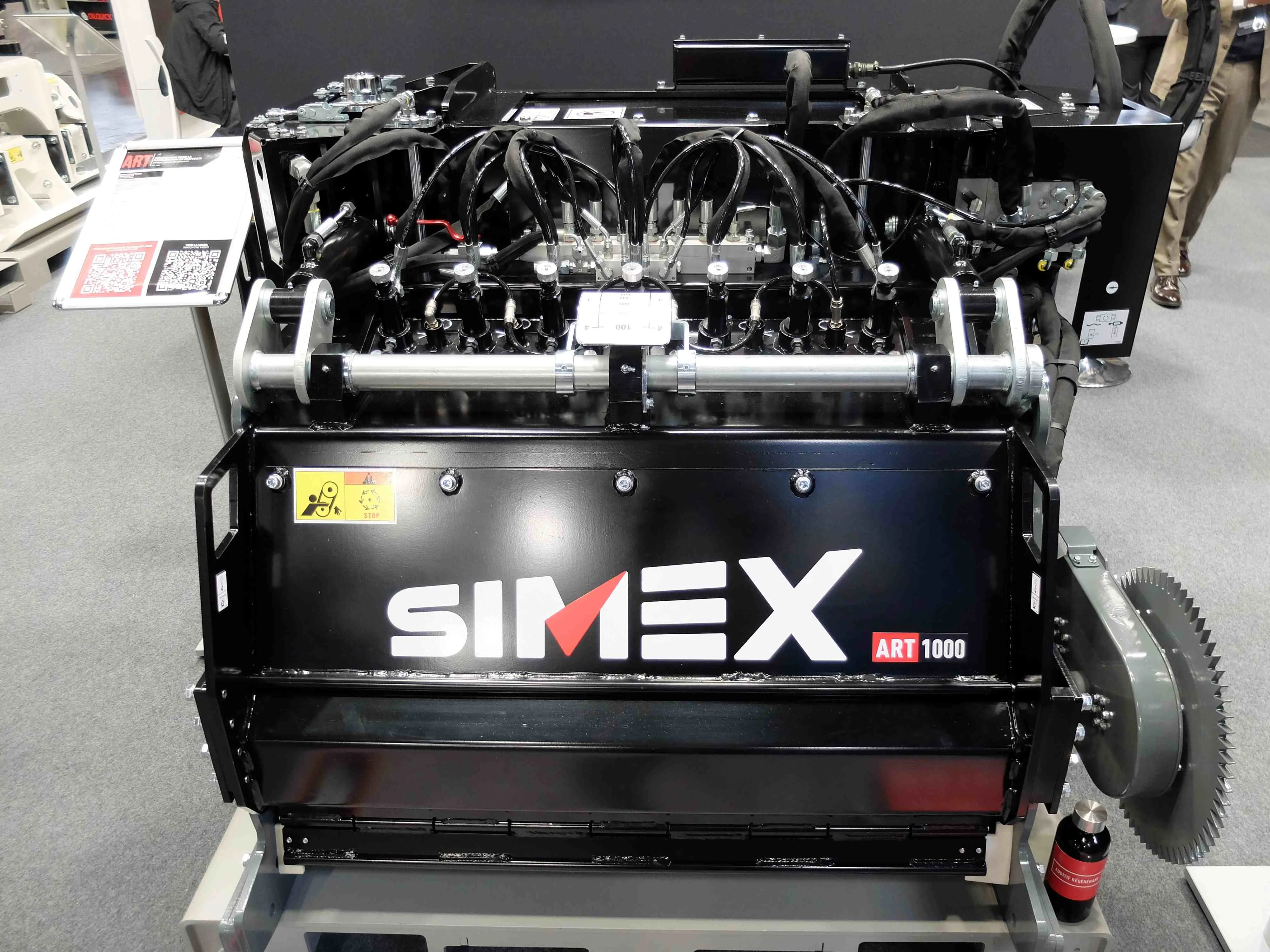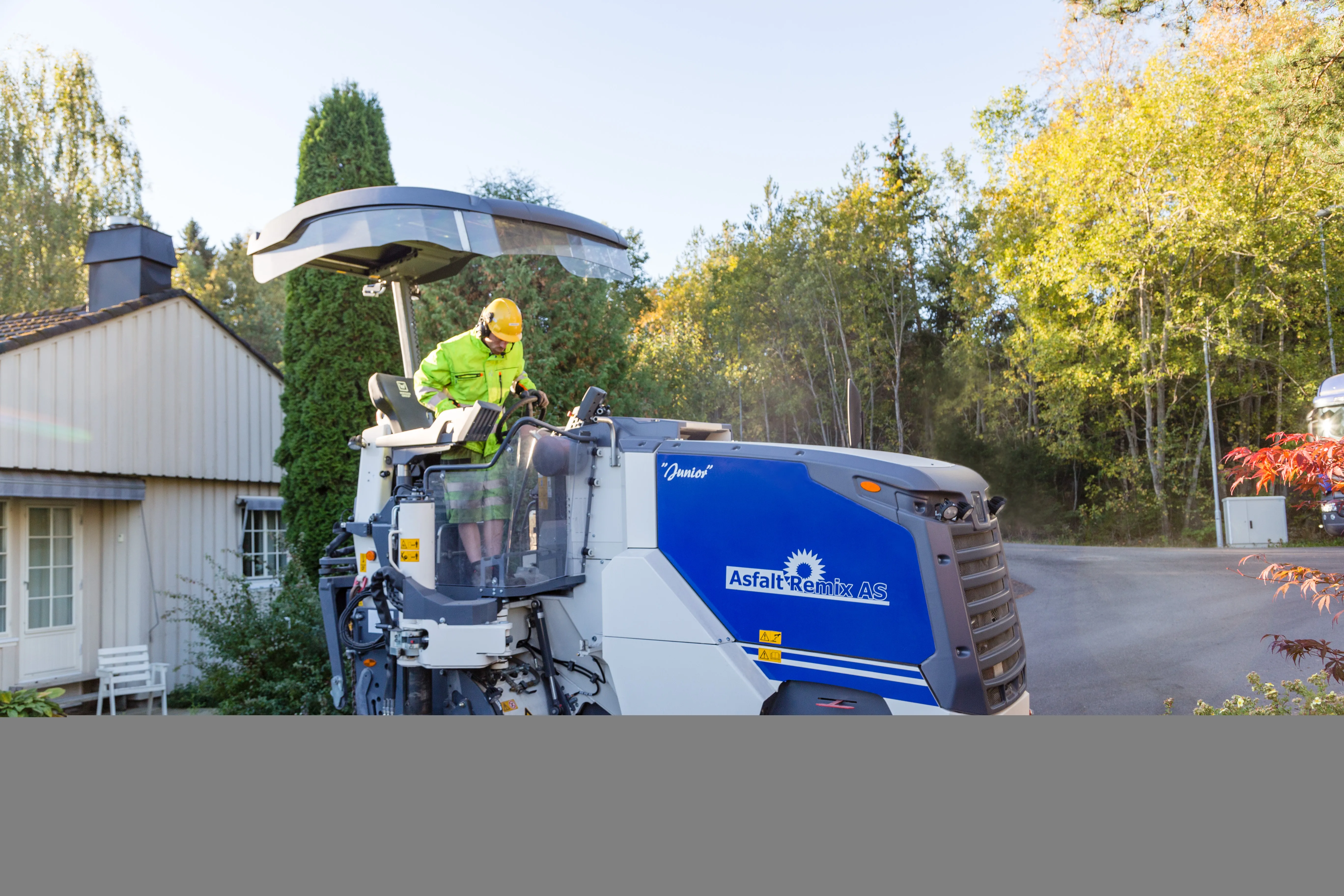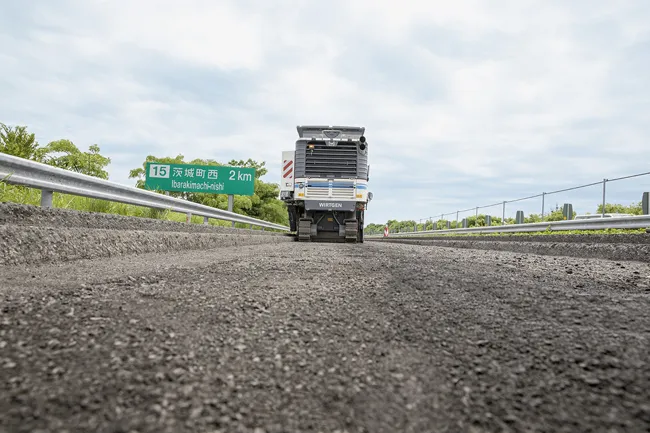
The new ART1000 unit from Simex offers fast and effective road repairs. The unit is suited to use on urban roads and offers a cost-effective solution for repairs and maintenance works.
The Italian firm is best known for its attachments for compact machines and this new unit is designed for use on a high performance skid steer loader with high flow hydraulics but it is rather more sophisticated than a simple milling unit.
Alessandro Ferrin from the firm commented, “It’s the most advanced attachment we have and we spent five or six years developing it. This is not a common milling attachment you fit to a skid steer.”
He said that the unit offers users the option of cold-in-place recycling allowing speedy, low cost road repairs. Additional training is required for the machine operator though to ensure that repair works are carried out properly. Apart from the skid steer carrying the attachment, the only other pieces of equipment required is a small twin drum compactor.
The milling drum at the front of the unit breaks out the old surface, with a second revolving cutter then reducing the material to the 0-15mm size. Ferrin said, “’Everything is controlled by the system that maintains a constant percentage of additive.” The unit is patented, with a special system that ensures the exact quantities of additives are used no matter the speed or depth of cut.
The unit can be used for repairing local roads quickly and as almost all of the material is from the surface, with only a small percentage of additives, it reduces the cost of carrying the work. Repairs can also be carried out repeatedly on the same stretch of road. Ferrin said, “It’s very important for us for the US market,” although he said that the unit will also be of benefit for the European market given its ability to repair roads quickly and cheaply.
The machine has a working width of 1m and can cut to a maximum depth of 100mm, although Ferrin said that in use, 30-70mm is more typical. Ferrin added, “We are working on smaller and larger versions,” although he said that these will only be ready for market in two to three years.









